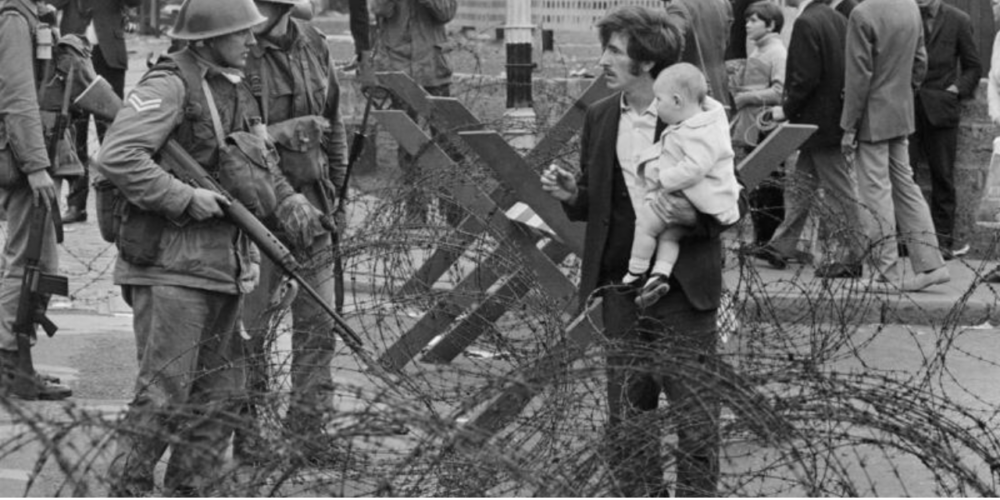What lies behind the British Government’s announcement last month that it intends to commission the production of what is being described in Westminster as an “official history of UK government policy towards Northern Ireland during The Troubles”? Due to the nature of the commissioning process and the fact that this project was first mooted by the previous Tory government weeks before it passed the Legacy Act, there is widespread skepticism surrounding its credibility.
It is no surprise that such doubts exist. The British government has continuously refused to release information relating to the activities of its agents involved in fatal actions in the Six Counties to families of the dead.
The current Secretary of State for Northern ireland, Hillary Benn, insists on maintaining the policy of non-disclosure through the secret service diktat of “neither confirm nor deny”. There is little reason, therefore, to believe that the British state will now open its intelligence files to scrutiny by independent-minded academics.
In reality, the British government has no intention of doing so. For instance, the five historians selected for nomination will have to agree to undergo security clearance. Thereafter the nominees will have to be approved first by the Secretary of State and finally by the British Prime Minister. Moreover, as professor Marie Coleman of Queens University Belfast points out, unless all material utilised is made publicly available, it would be impossible to carry out basic authentication requirements: that is, to openly peer review any account produced.
So, what are the Brits up to? It goes without saying that, as with every large institution, the British state is not beyond dressing windows. Nevertheless, there is much more behind this project than a mere cosmetic exercise. The British establishment is determined to define the narrative of what happened in the Six Counties to conceal its imperial modus operandi in pursuit of maintaining absolute control.
To achieve this objective, London will follow a well worn path. A group of compliant academics will be selected to create a suitable narrative replete with the required terminology. These scholars need not even be aware of their role in the process. As Noam Chomsky, quoted recently in the Morning Star by Ian Sinclair, has pointed out it is often the most educated who are the most indoctrinated with the dominant ideology.
It will be a real surprise if the telling of this “official history” fails to discuss the British government’s policy for dealing with what will be tendentiously defined as “a divided society riven with sectarianism exacerbated by a murderous terrorist campaign, contained only by the intervention of Britain’s military, keeping the warring factions apart”. By way of supposed balance, there will be an admission of “mistakes” made by the so-called security forces. Events such as Bloody Sunday or the Ballymurphy massacre will be covered in some detail, if only because to do otherwise would be untenable.
However, what will not be mentioned is the fact that sectarian divisions were the product of British imperialism’s strategy to maintain a foothold in what for long was the strategically important island off its western coast. Moreover, what most definitely will not be recorded is the counter-insurgency strategy employed by the British state: and yes, the British state, rather than a handful of rogue agents. A strategy that evolved over generations spent suppressing the colonies; a strategy centred on deploying local reactionaries to bloodily undermine resistance to the state.
That much is understandable, but the question remains: why is this story-telling important to the British state? The answer lies not in preventing embarrassment to the regime, but to ensure that the tools of repression remain available to the ruling class.
By presenting what will be described as the definitive account of the Irish Troubles delivered by high-flying academics, further questioning will be confined to a reading of the official history. Educational institutions and the media will use it as their basic reference point and the political class will happily endorse its findings. And all the while, the deep state and its methodology will remain un-scrutinised, intact and importantly therefore, available for deploying if and when deemed necessary for maintenance of the status quo.
An intriguing question, though, arises in light of Britain’s declining global presence. Might the ultimate irony be that the same deep state is calculating that the possible zone of deployment for techniques perfected in Ireland will be John Bull’s own island?
Wasn’t it Karl Marx who said that Ireland would be the key to the English revolution?






